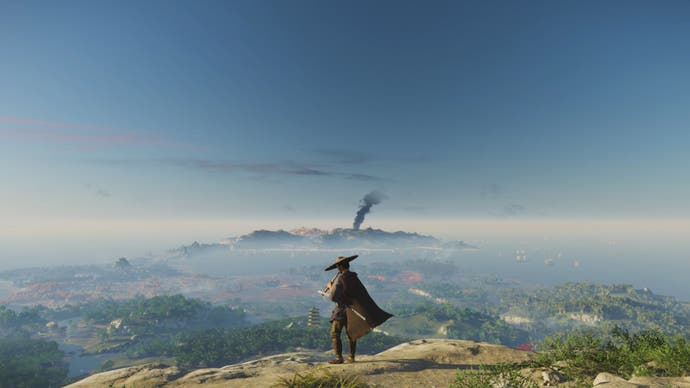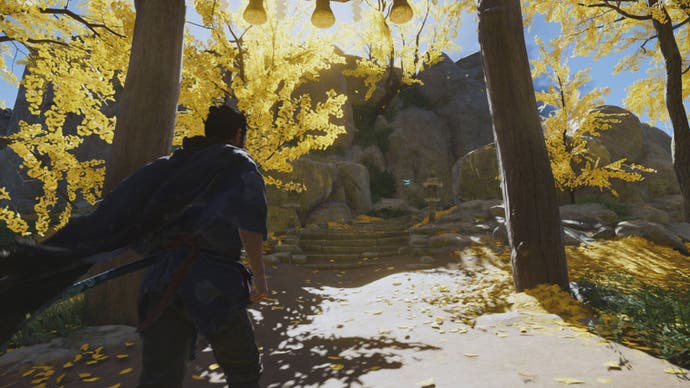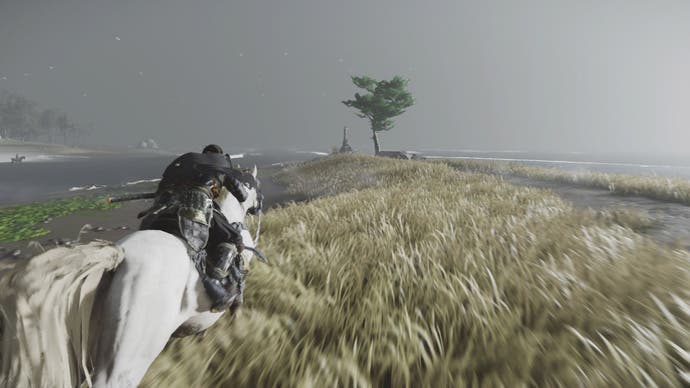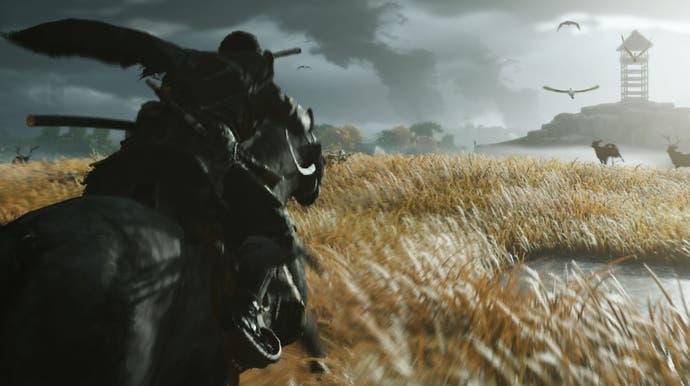Ghost Of Tsushima length: How long is Ghost of Tsushima, and how many acts are there?
How long it takes to see Sucker Punch's latest to its conclusion.
Ghost of Tsushima is a sizeable and beautiful open world, and players will approach it in different ways.
Some will want to soak up every detail and side-quest along the way, others will simply want to see the story through to the end.
For those players, reading how long Ghost of Tsushima is might be worth knowing from the off - especially if they are still making their way through recent PS4 exclusive The Last of Us Part 2.
Before any of that though, if you haven't already, read our Ghost of Tsushima review to find out what we thought about Sucker Punch's latest.
Ghost of Tsushima length: How long is Ghost of Tsushima?
If you were to focus purely on completing Ghost of Tsushima's main story, with minimal side activities just to keep you topped up on experience and gear as you go, Ghost of Tsushima is around 25 hours long.
If you wanted to tick off everything in the whole game, meanwhile, then a completionist run of Ghost of Tsushima is about 45 hours long.

It's worth clarifying that the length of the game's missions - referred to technically as "tales" - obviously varies, as do the Acts. The third Act is the shortest, while the first two are pretty similar in length.
As for how much freedom you have to complete things as you wish, the game starts with about an hour-long prologue that's completely linear.
After that, you gain complete freedom to the first of its three regions, the south of the map called Izuhara. After completing Act 1, you then get access to the two northern sections Totoyama, and Kamiagata.
How many 'tales' missions and acts are there in Ghost of Tsushima?
There are three acts in total, featuring a total of 24 main missions - plus the initial, linear prologue - as part of the critical path.
Our Ghost of Tsushima walkthrough outlines the critical path - named Jin's Journey, technically - in brief, with objectives and rewards for each mission listed so you can see whether you want to push on through, or tackle some more side-quests.

That said, some of those main missions - namely The Tale of Lady Masako and The Tale of Sensei Ishikawa - actually spin off into side quests of their own. You need to do the first of both of those, early on, in order to progress the story, and then the rest of those side quests are optional.
We recommend doing them though, as they're where you'll find some of Ghost of Tsushima's better moments!

As you play, you'll find Ghost of Tsushima pops up a cluster of two or three main missions at once, like at the start of the game where you'll unlock The Warrior's Code, The Tale of Sensei Ishikawa and the Tale of Lady Masako.
When this happens you can complete these in any order, but will still need to do all of them to progress the main story of course - when in doubt, they're the big gold diamonds on your map.
Looking for more help? Our Ghost of Tsushima walkthrough provides an overview of the critical path, including how to complete missions The Broken Blacksmith and Shadow of the Samurai. For those who've yet to begin, our Ghost Of Tsushima length page lets you know how much time you need to dedicating to finishing the game. For those looking for completing side-quests, we have lists of Ghost Of Tsushima Hot Spring, Ghost Of Tsushima Bamboo Strike and Ghost Of Tsushima Mythic Tales locations.
Meanwhile, in terms of side content, there are:
- Eight Mythic Tales, each rewarding you with special gear or abilities - or both.
- Six character tales, with a handful of multi-part quests within them; there are nine individual quests in the Tale of Sensei Ishikawa for instance, four in the Tale of Yuna, and so on.
- The Tales of Tsushima, which are one-off side quests that you get at random from peasants, either through talking to them in towns or those that you rescue from random encounters with roaming Mongols in the countryside.
- Various collectable-style activities, such as finding Hot Springs and Bamboo Strikes, which provide rewards such as character upgrades and new items.



